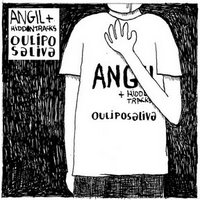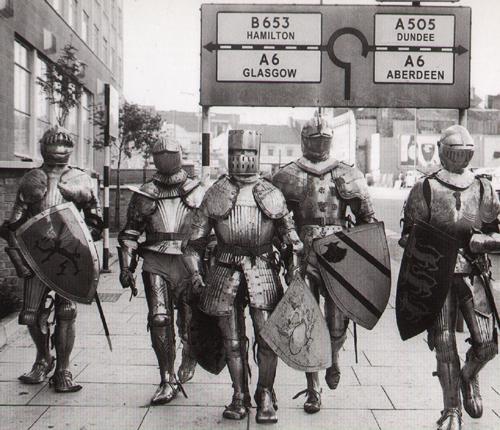Time for part two of this bloody excellent stuff. Read part one here if you’ve been a TWAT and missed it.

Musically, much of Ouliposaliva deals in repetitive drones and simple chord progressions over which the other instruments provide melodic focus. How much input did the other musicians have on their own parts? Was it meticulously planned by you?
The strings and flutes were. The string players in the Hiddentracks have an academic background, so they expected me to be directive, and provide them with accurate instructions and written parts. The brass and woodwind players are the opposite: I would give them general directions about the atmospheres of the songs, and about the possible ‘becomings’ of their sounds, then they would start improvising on the melodic frames of the songs.
I like mixing these two different ways of working. Paradox can be productive. The one thing all of us were obsessed with throughout the recording of the album, though, was storytelling. Before anyone recorded their part, Francis (the saxophone player) would say: “make sure you’re telling a story!”
On In Purdah you speak of war-like thoughts building slowly in your mind. What drives these thoughts?
In purdah‘s theme of a character willing to be emancipated from his creator was inspired by Paul Auster. Once a novel is finished, where do all the protagonists go? I picture this one on a desert island, hoping his turn will come again, and trying to keep fit meanwhile. But his patience has limits… hence the violent thoughts.
As well as In Purdah, several songs on the album speak of aggression (I’m Trying To Fit, the social conflicts in Kids etc.) in many forms, be they physical or in thought. Why do you think this is? Were there any particular aspects of life that drove you to write about these aggressions?
A friend of mine recently told me: “All your songs are about fighting”. I think he had a point! I write many songs on conflicts and wars, notably the Israeli-Palestinian one, which I read a lot about. It is a fascinating, inspiring, and very sad subject. Amateur psychology would suggest this is related to the father-son continuous conflict I had to live through in my own childhood. Not totally wrong.
There are three breezy anchor-points in the record, the Do Not Think tracks. What function do they serve for the shape and flow of the whole album?
Do not think was supposed to be in one part to start with; recording it in three different pieces came to my mind during the recording sessions, as a reference to the B side of Abbey Road, which I listened to a lot while writing the album.
As well as these three, the two You Most tracks provide another familiar thematic device throughout. Was there a danger that these linking tracks could have impeded the pace of the record?
Yes there was, we did discuss it with Gilles and Gérald of We Are Unique Records (who produced the album). We all agreed it didn’t, as the first two versions of You most are quite short. I really wanted both to appear – the idea was to show that a song is never over. I often compare songwriting and flower arrangement (the French word ‘composition’ is used for both): it all depends on how you coordinate the elements.
Now that the record is completed, do you see it as a success? Did you achieve what you set out to do?
All Hiddentracks do, indeed! We are very proud of what we did. What I wanted was Ouliposaliva to sound like a collective piece of work, like a jazz record. I hope this is the case.
What sort of record will you tackle next? Will you pursue a different kind of concept or a more traditional structure?
I already have the guiding concept of Angil’s next album: I am writing boy-girl duets. Each song will feature a different guest. I’ve written 10 songs or so. Meanwhile, we’ll be releasing the first album of a side-project we recently created with 3 friends of mine. It is called Jerri.
—
There he goes… there he goes. Make sure you give Jerri a listen, the link’s above. Additionally, make sure you go back and listen to the Angil album again and think a little bit about all the precious information you’ve just gleaned from this interview. Better, non? Here’s some music.



